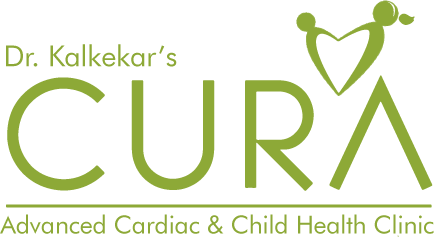Essential Guide to Heart Disease: Symptoms, Risks, Prevention
Heart disease has recently upsurged in the youth, mostly because of lifestyle and dietary changes.
Overview of heart disease as one of the leading causes of death globally.
Understanding heart disease, its symptoms, risks, and preventive measures is important.
The purpose of the guide is to educate patients on how to recognize heart disease early and take steps to reduce their risk.
What Is Heart Disease?
Heart disease encompasses different conditions that affect the heart’s ability to function as it should. Such diseases cause problems in the heart vessels, trouble pumping blood, and even lead to health hazards that can be life-threatening. These conditions include:
- Coronary Artery Disease (CAD): CAD affects the arteries that supply blood to the heart and causes plaque buildup in it. Due to this buildup, this artery narrows down and causes discomfort and chest pain.
- Heart Failure: When the heart is unable to pump as much blood as it should, it is said to be heart failure. This may lead to fatigue and shortness of breath.
- Arrhythmias: Arrhythmias are irregular heartbeats that cause a fluttering sensation in your chest. This can range from being a mild problem to something that requires medical attention.
- Valvular Heart Disease: When one or more of the valves of the heart are unable to open and close properly and affect blood flow, it is called valvular heart disease.
Common Symptoms of Heart Disease
Symptoms of heart diseases may vary from something very obvious to something confusing. Knowing about the symptoms in depth can help in analyzing your condition and seeking immediate help when required. Common symptoms of heart disease include:
- Chest Pain (Angina): Chest pain or angina can be a feeling of pressure or squeezing in the chest that indicates a heart disorder. Sometimes, angina can also be felt in the shoulders, arms, neck, or back. If you experience chest pain or something similar in the nearby areas, discuss it with your doctor at the earliest possible.
- Shortness of Breath: When the heart cannot pump blood properly, it can lead to shortness of breath. It may be a sign to pay attention to your heart health.
- Fatigue: Improper blood pumping in the body can leave you feeling unusually tired. If you are suddenly tired without a clear reason, it can be related to heart health.
- Palpitations: If you can sense that your heart is skipping beats or fluttering, it could be a sign of an irregular heartbeat problem associated with heart disease.
- Swelling (Edema): Unexplained swelling in the legs, ankles, or feet can happen when the heart cannot pump as effectively as it should and is another sign of heart disease.
- Dizziness or Lightheadedness: When you feel sudden dizziness or fainting, it could be related to your heart. If it happens frequently, you might need to seek medical attention.
- Nausea or Vomiting: If nausea and vomiting occur alongside other symptoms, it can be linked to heart problems.
Understanding the Risk Factors
Various factors pose an undeniable risk to the heart and lead to heart diseases. Knowing about them can help you avoid potential risks to your heart.
- Non-Modifiable Risk Factors: These are the factors that you have no control over such as, your age, gender, family history, and genetics. Your heart health greatly depends on these factors and hence you must stay aware of them.
- Modifiable Risk Factors: These are factors that you can manage such as smoking, high blood pressure, high cholesterol, diabetes, obesity, physical inactivity, and an unhealthy diet. These can be brought under control by reinforcing positive lifestyle changes, eating healthy, and exercising to avoid heart diseases.
- Lifestyle Factors: Lifestyle factors such as stress, alcohol consumption, and sleep apnea can add to the risk of heart disease. Stress management, limiting alcohol intake, and getting enough sleep can help maintain heart health.
Preventing Heart Disease: Key Strategies
Heart diseases can be prevented by incorporating some key strategies in your lifestyle.
- Healthy Eating: Maintaining a healthy diet rich in fruits, vegetables, whole grains, and lean protein can help with heart health and functioning, while also maintaining your overall health.
- Regular Exercise: Staying active and exercising regularly can help in keeping your heart healthy. Basic exercises such as walking or cycling can prevent the risks of heart diseases.
- Smoking Cessation: Smoking poses an intense risk to your heart. Stopping smoking shows immediate health and heart benefits.
- Managing Stress: Stress management techniques such as meditation, yoga, and proper rest are beneficial for your heart health.
- Regular Health Screenings: Regular health checkups to monitor blood pressure, cholesterol, and glucose levels are important as they can indicate any underlying health risks.
When to See a Cardiologist
It is important to consider visiting a cardiologist when you are experiencing symptoms as mentioned below:
- Experiencing Symptoms: If you are experiencing symptoms such as shortness of breath, fatigue, chest pain, and nausea, it can be a sign that you need to visit a cardiologist immediately. This can ensure good health and a long life.
- High-Risk Individuals: If you have high-risk factors, such as genetics, age, and family history, that are related to heart disease, you must regularly consult a cardiologist for a health screening.
- Preventive Care: It is necessary to visit a cardiologist even if you do not have any symptoms. This will help detect any early symptoms to treat the disease beforehand.
Living with Heart Disease: Managing Your Condition
Upon diagnosis, careful management of your condition can help in maintaining overall health and moving towards a healthy life.
- Medication Management: Upon diagnosis of heart disease, the cardiologist prescribes certain medications to manage your condition. Take your prescribed medication to control your heart disease and prevent it from worsening further.
- Lifestyle Modifications: It is never too late to modify your lifestyle, such as staying active, eating healthy, and managing stress.
- Monitoring Symptoms: Keep track of how you are feeling each day, what activities you are into, and what you consume, and then inform your doctor about it. This is a crucial factor in managing your condition.
- Support Systems: Having heart disease can be further stressful. Such situations call for having a support system of friends, family, or support groups, which can help in effective stress management and condition improvement.
Conclusion
Heart diseases are critical for anyone affected by them. Educating yourself about the symptoms can help detect heart conditions early. Knowing about the risks can help prevent the potential causes of the disease.
It is also necessary to consult a cardiologist for regular checkups to monitor your health and prevent heart disease. If you are looking for a Cardiologist in Seawoods, book an appointment with us.




